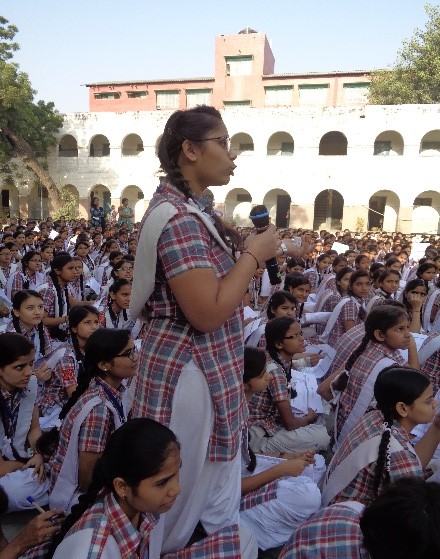|
Integration of Skilling
Despite
being the worldís youngest country in terms of demographic dividend,
India has only 2% of the workforce skilled compared with other
countries1. After Indiaís independence, there was a huge focus on
providing education and literacy but not much was done to enhance the
Employability Quotient (EQ) and produce skilled manpower through skill
training interventions. As per the UGC report, in 1950-51 there were
approximately 750 colleges affiliated to 30 universities, which has
grown to over 727 universities, 35000 colleges and 13000 standalone
institutions in 2014-15 an There are factors in the Indian education system that prevent skill development of students such as:
Skill based learning and training is an integral component of increasing efficiency and productivity for sound economic development of any economy. In India, itís still at a nascent stage. However the demand for skilled manpower is huge and to cover this gap, it is very pertinent to re-engineer the skill ecosystem. Skill based learning in schools and colleges can provide the following benefits:
Skill Development at the School Level:
At which Age should Skilling begin for Students? Skill development should ideally begin at the age of 13 years, from the eighth standard. Evolution of Skill Training in Schools and Colleges according to the Learner's Age:
|
|
Case Study Name - Rishi Tomar Rishi completed her graduation from Shaheed Bhagat Singh College in Delhi. She was in a dilemma from where to start her career so she did a skill training programme facilitated by Development Alternatives (DA). After two days, she was lined up for an interview. She was briefed about the job description, location and salary bracket. Rishi practiced her computer lessons and received her English classes. She got selected and was filled with joy. Her job profile is to manage news column that broadcasts on News Channel News Ten India. Her parents are very happy for the additional family income because earlier their total income was 15000-20000 per month. Her father is an electrician and runs his own shop. They are four siblings. Being the eldest, Rishi has seen her father struggling even to pay their school fees. Her father always wanted to see his children successful and, in a position, to take care of the family. Rishi is glad to have fulfilled her fatherís dream. |
|
Introduction to Skill Training at a Young Age will Fulfil the following Objectives:
In today's scenario there are ample opportunities that one can choose from and excel in. However, the Indian thought process is more clued on to the typical traditional academic streams and careers in the field of engineering, medicine, accounts, MBA etc. Awareness about skill-based, solution-centric learning can bring in a positive shift in making students aware of the actual job scenario through real work in the industry. If they donít learn early-on about how their formal education is going to help them get their dream jobs or the careers they aspire for, they will never get an opportunity to realise their dreams. And, of course, skills are dynamic. People need to learn, unlearn and re-learn in order to upgrade as technology changes and transforms the workplace requirements. ■
Endnotes:
Raisa Chaudhuri
|
 d
counting.2 Regardless of this tremendous growth, higher education in
India has not proved too efficient in making the youth of the country
employable as per needs of the employers due to low Skill Quotient (SQ).
d
counting.2 Regardless of this tremendous growth, higher education in
India has not proved too efficient in making the youth of the country
employable as per needs of the employers due to low Skill Quotient (SQ). 